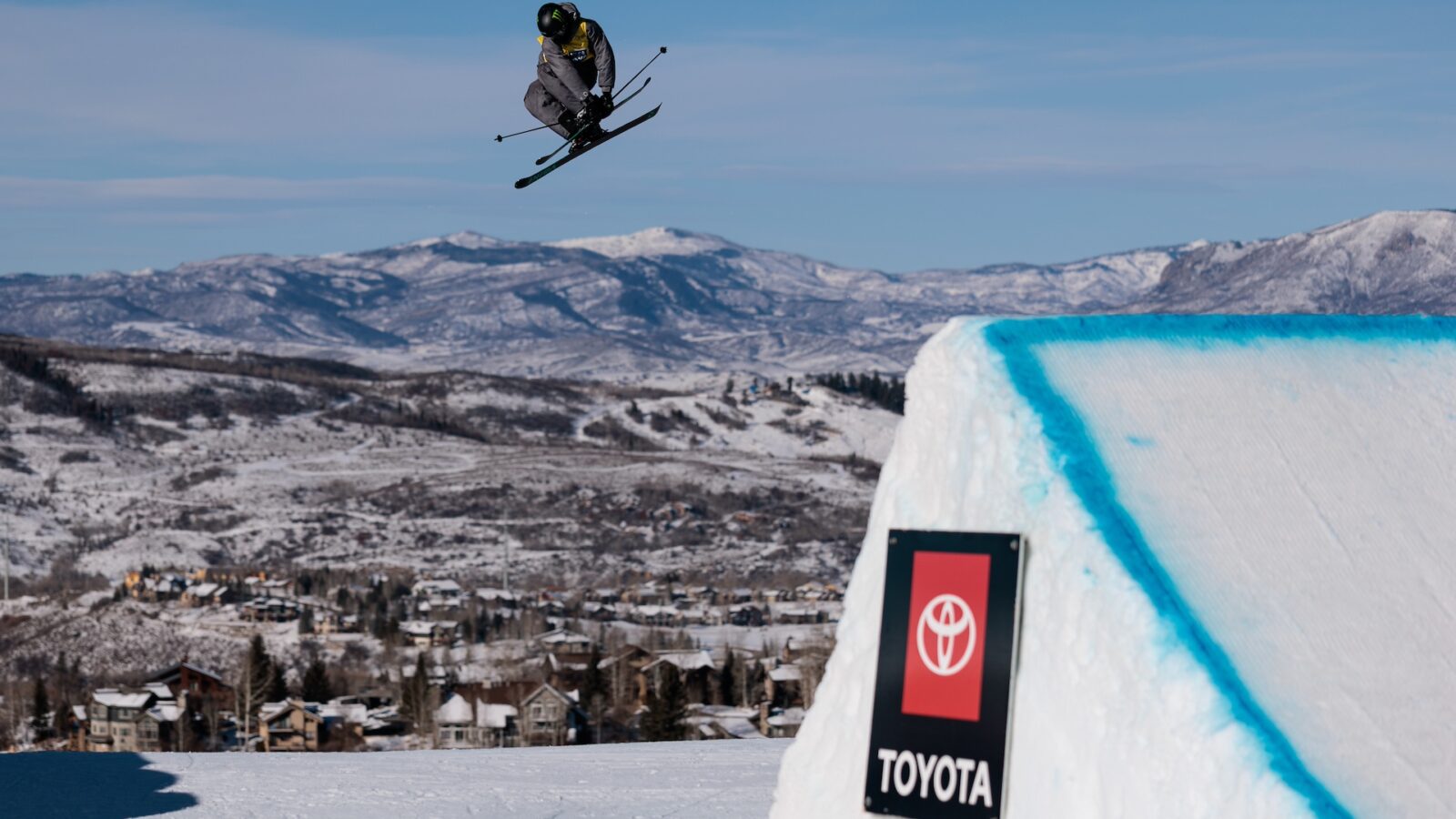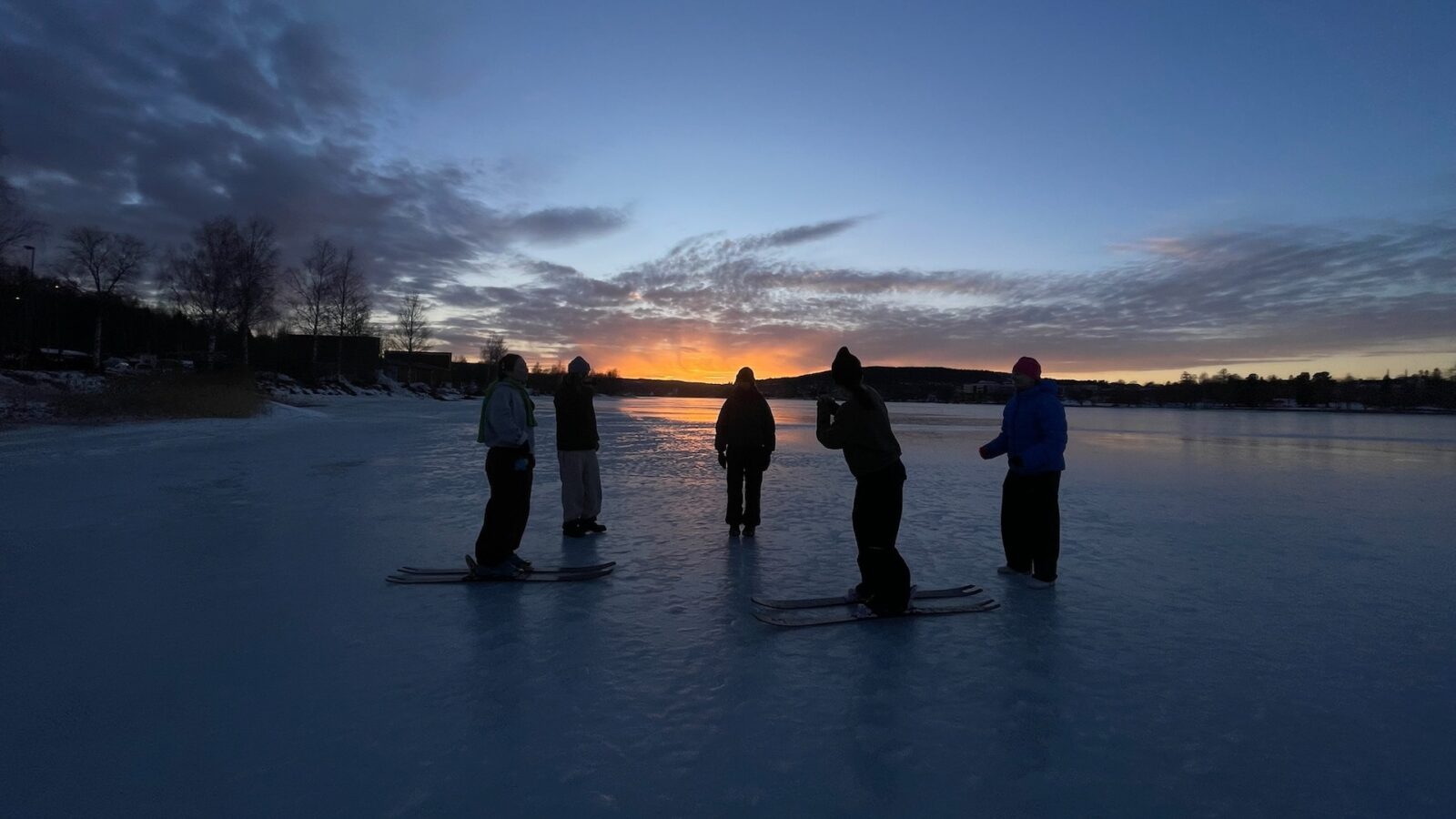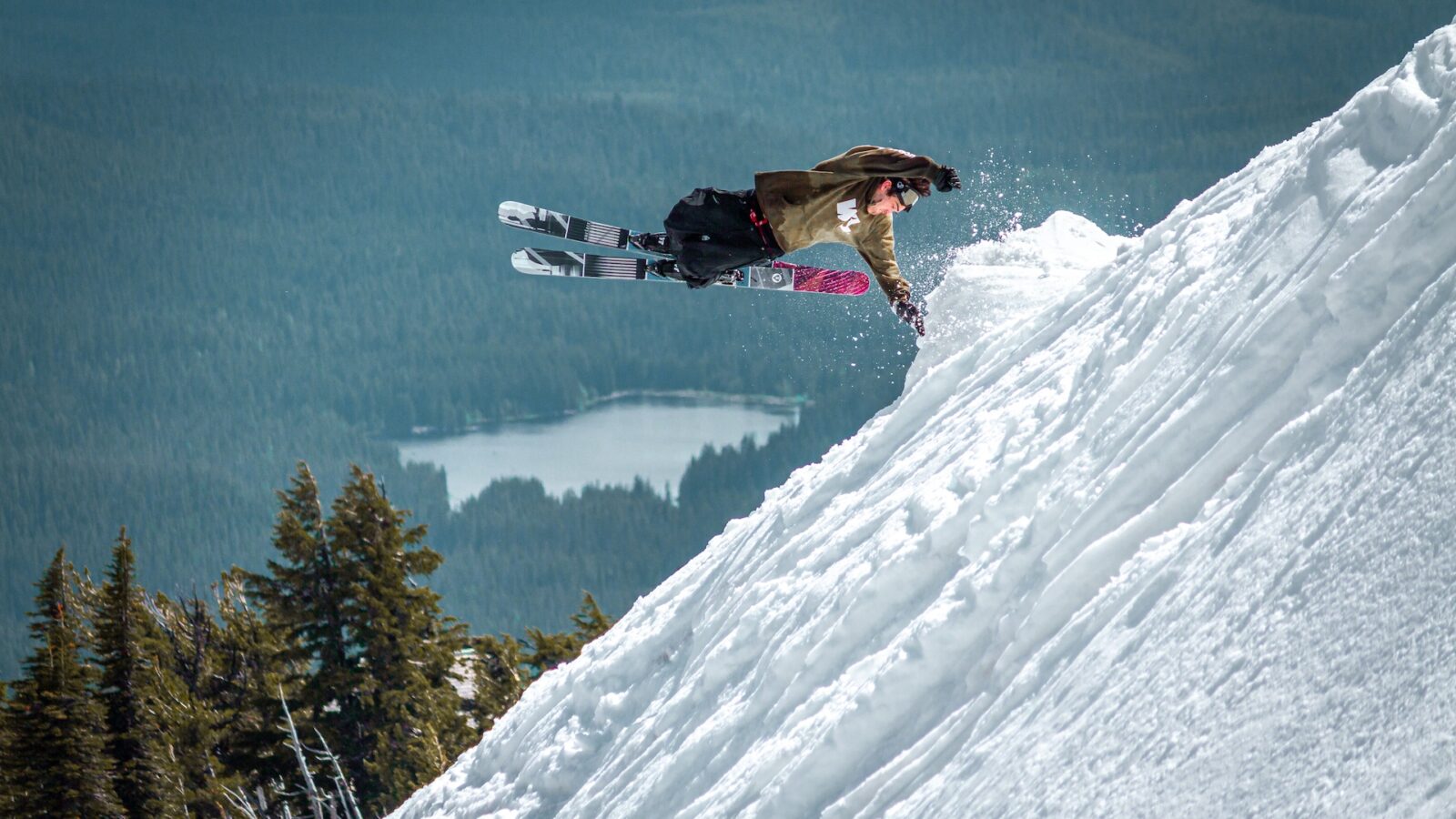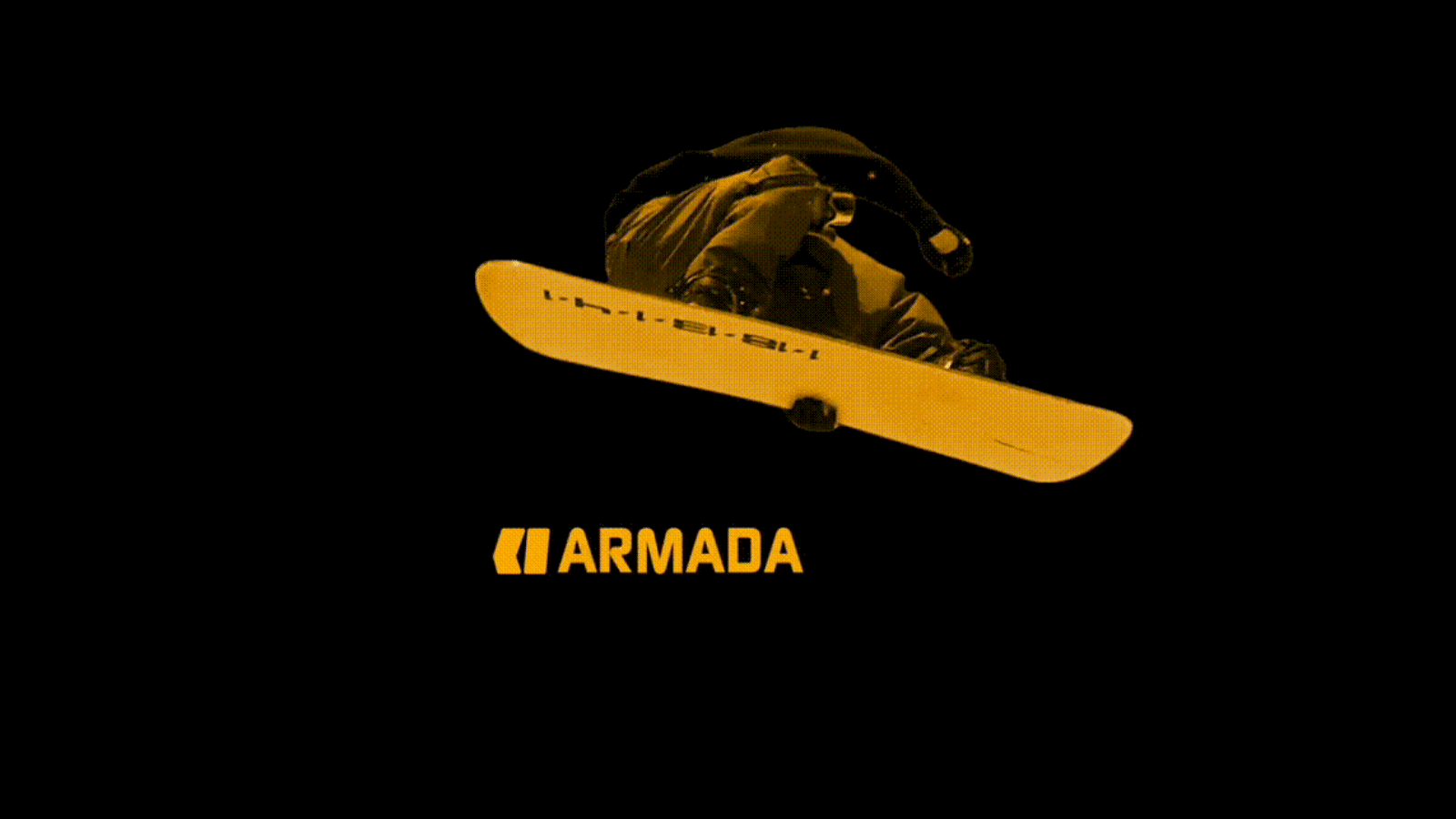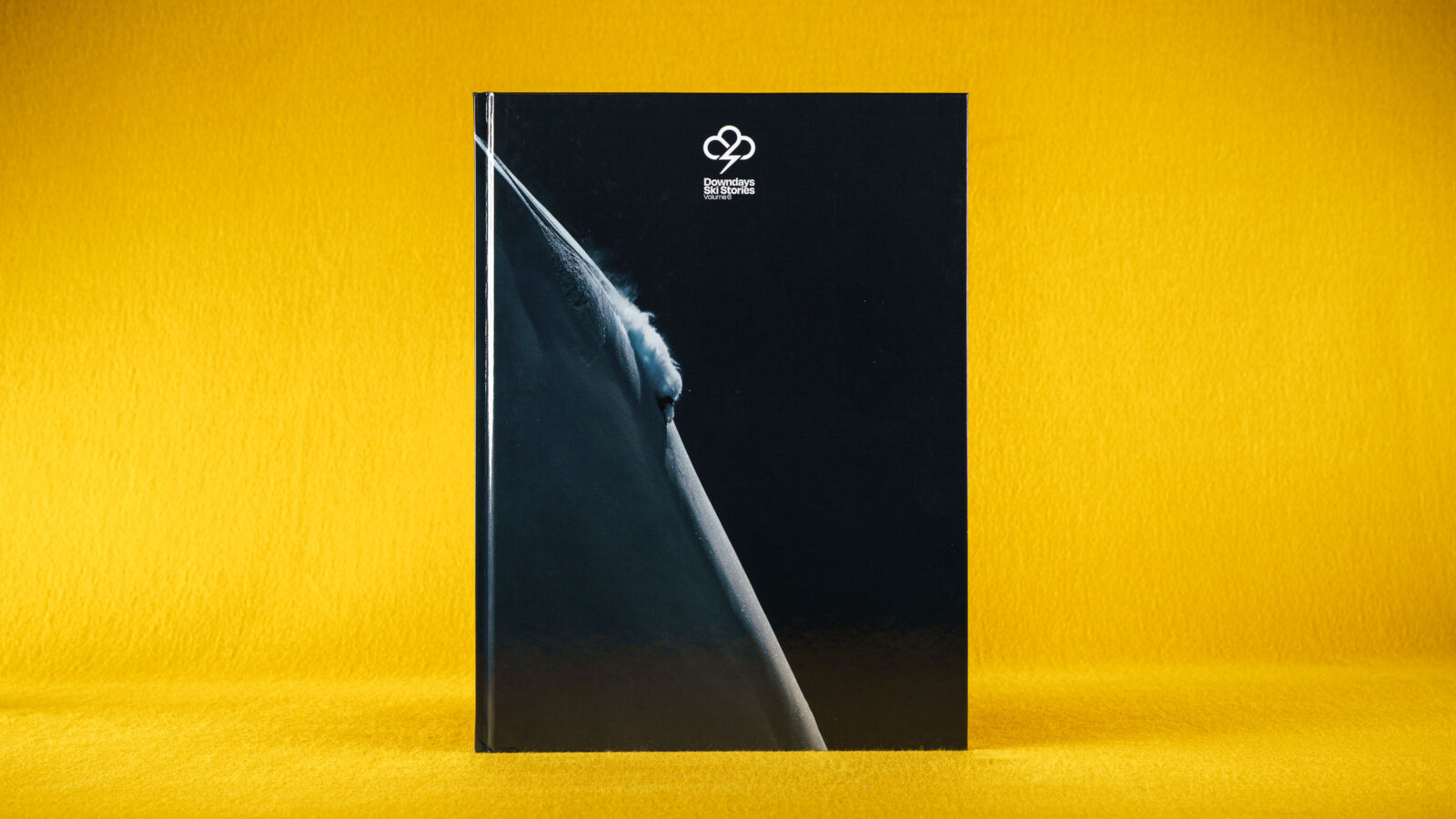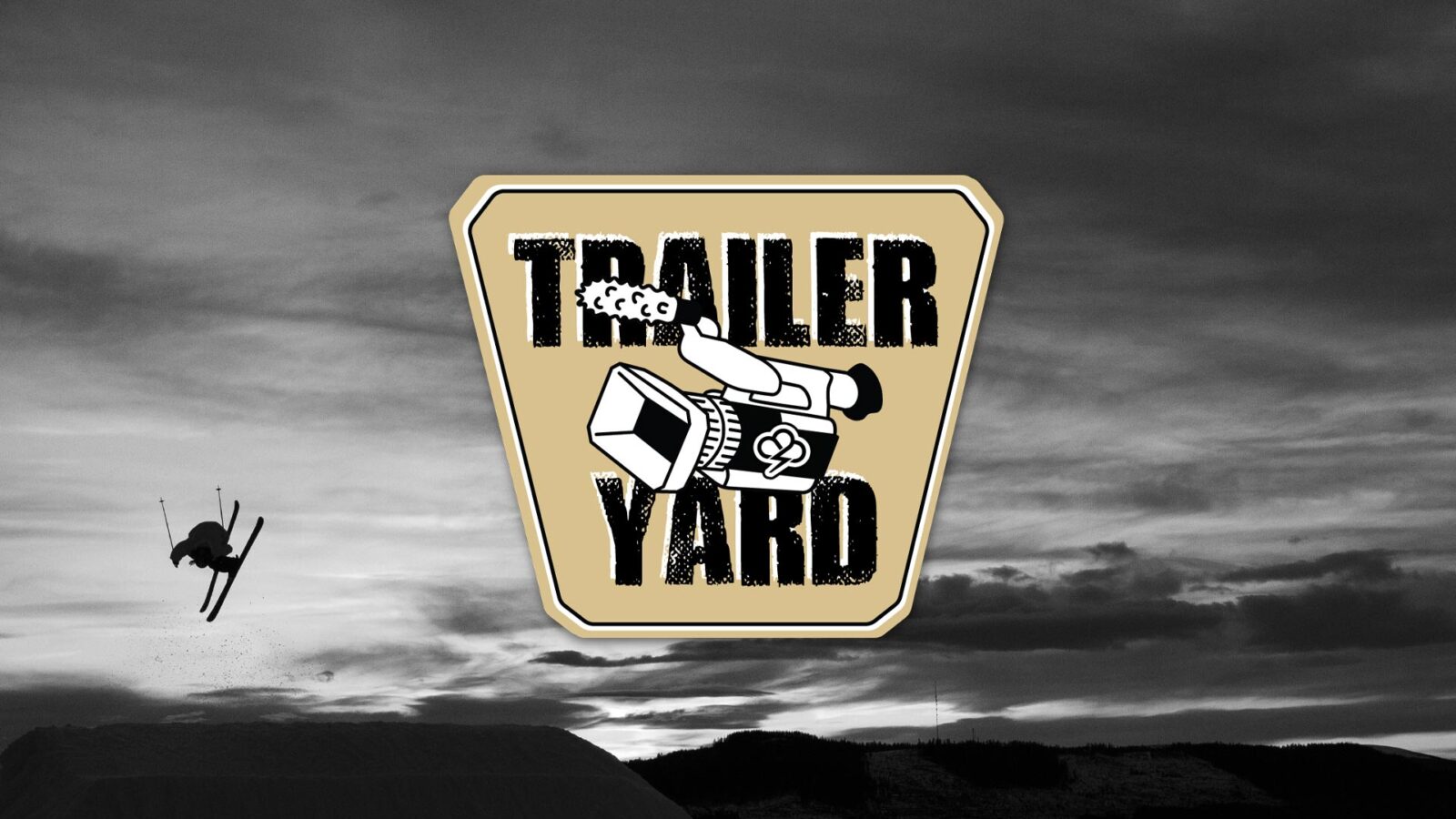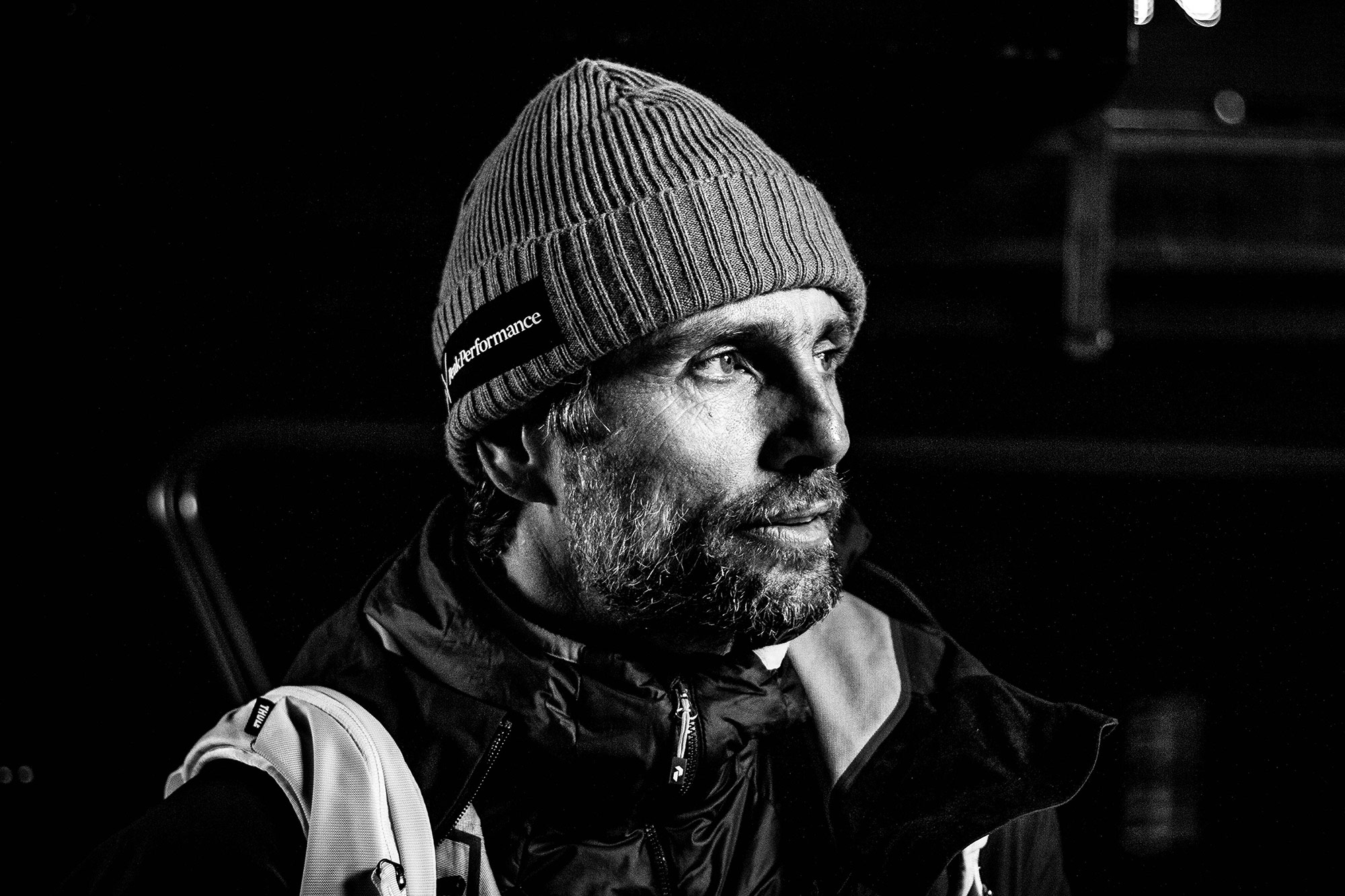
Stories
HighlightTalking with the boss
The future of the FWT: Nicolas Hale-Woods in Interview
The news in early December 2022 came as a shock to many: THE FREERIDE WORLD TOUR (FWT) ANNOUNCED THAT IT HAD BEEN ACQUIRED BY THE INTERNATIONAL SKI FEDERATION (FIS).
One of the first questions was: How exactly can a sports tour be acquired? Well, like most independent sport events, the FWT was owned by a private company. This company was founded by Nicolas Hale-Woods, a man who’s played a leading role in turning freeride from an unorganized, niche activity into a recognized competitive discipline with a vast international organization.
A native of Switzerland with half English, half Swiss parents, Nicolas studied business, spent a lot of time in Verbier, and became an accomplished snowboarder as well as surfer. In the 1990s, together with a few friends, he started the Xtreme Verbier, the famous snowboard freeride competition on the Bec des Rosses. This event would later grow into a full-fledged tour for both skiers and snowboarders, what we know today as the Freeride World Tour.
The gradual development of competitive freeriding into a structure that now includes hundreds of events and thousands of participants was in large part envisioned, overlooked and executed by a rather small independent enterprise based in Verbier. Now, according to its creator, it’s time for the next step. I had the chance to talk to Nicolas shortly before Christmas. This is what he had to say.
This article features an abridged version of our interview with Nicolas Hale-Woods from our upcoming yearbook, Ski Stories Volume 4.
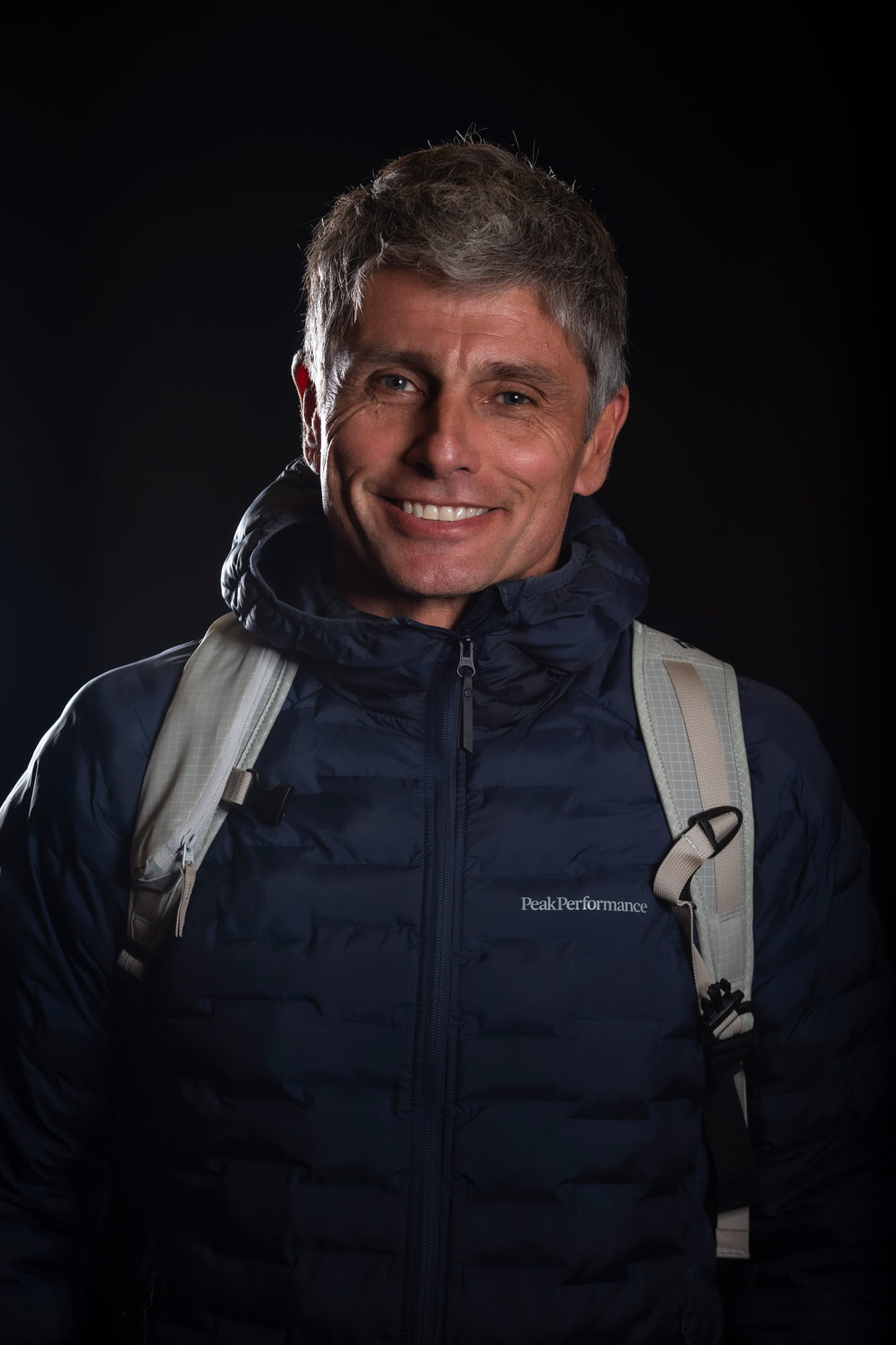
Nicolas Hale-Woods. Photo: Dom Daher/Freeride World Tour
Klaus Polzer: Hello Nicolas! The acquisition of the FWT by FIS came as a surprise. How long did it take for this deal to go through from the first time you started to talk to FIS?
Nicolas Hale-Woods: It took 13 months from the first talk to the signed agreement. So it was November of 2021 that we first talked to FIS about a potential deal. We were put together by a common friend at that time who thought that there would be interest on both sides and good reason for both parties to talk.
So it was neither you nor FIS who started the conversation initially?
No, but I had been in contact with FIS for the last ten years with Sarah Lewis, the Secretary General. Before the election [of the FIS president] in 2021, we were meeting every second year to see if there was any kind of collaboration that would make sense. Before the election of the new president [in 2021], however, there was no option to have our model and the FIS model to co-habit. With the new president and his view on the future, that has changed.
From the press release, it wasn’t totally clear to me whether FIS bought only the rights to the tour, or the actual company that owns the FWT.
FIS bought the company 100%, but I am still running the company for the time being. My contract, the terms of which I cannot disclose, is long-term. To give you an idea, I would say between six and ten years. I will continue heading the World Tour with the same team from the same place with the same budget and the same model. That means besides the FIS logo on some of our communication and branding, you will not recognize a difference as the audience or the riders. FIS management said: "You know how to do it. You do it well. We don’t want to break that."
besides the FIS logo on some of our communication and branding, you will not recognize a difference as the audience or the riders.
What are the reasons that you decided to sell the company? Were there concrete economic reasons, hopes for better opportunities, or something else? Can you give us more insight on that?
Yes, of course. For eight years I have been looking for strategic and financial partnerships that could have meant a merge with another sports agency, or financing from a financial fund, or the sale of equity to a media group. Basically since the end of 2014—not permanently, but at many times—I had talks with many different actors from our [business sphere]. Why did I do that? Well, we were a stand-alone, organically developed small company, which brings some risks for the long-term development. We were running solely on our revenue, which is 80-90% based on sponsorship money from destinations and corporate companies. We basically don’t have income from the sale of media rights, and we don’t have ticketing. In the sport events landscape, even though we are in the trendy action sports niche, this is a risk, and it is a big risk since there is a huge competition between different sports and sports properties to gain the attention of the audience. Also, there have been big changes in recent years, with now not only events communicating through media, but also each athlete being their own media outlet competing for that attention and the rest of the whole entertainment industry being in constant reach for everyone through our lovely smartphones. Therefore, we thought that growing organically without outside support in terms of funds, network or reach was a risk. It’s not that we had any immediate problem—like we couldn’t afford to run the tour anymore—but it was a medium-to-long-term concern of where we would be heading. So when we started talking to FIS about a deal a good year ago, the tone was very different than before, with the option to continue to run the World Tour in the same manner as we have in the past. This is why we decided to go for it. If we’d had to completely change the structure [of the tour] with the rights going to the national federations, with national teams straight away, that would have been a no-go. [Given] the options of continuing alone or continuing as part of FIS while keeping our exact model, we thought the second option was the better choice for every stakeholder in the sport, from riders to organizers, to industry partners, and basically the whole environment of our sport.
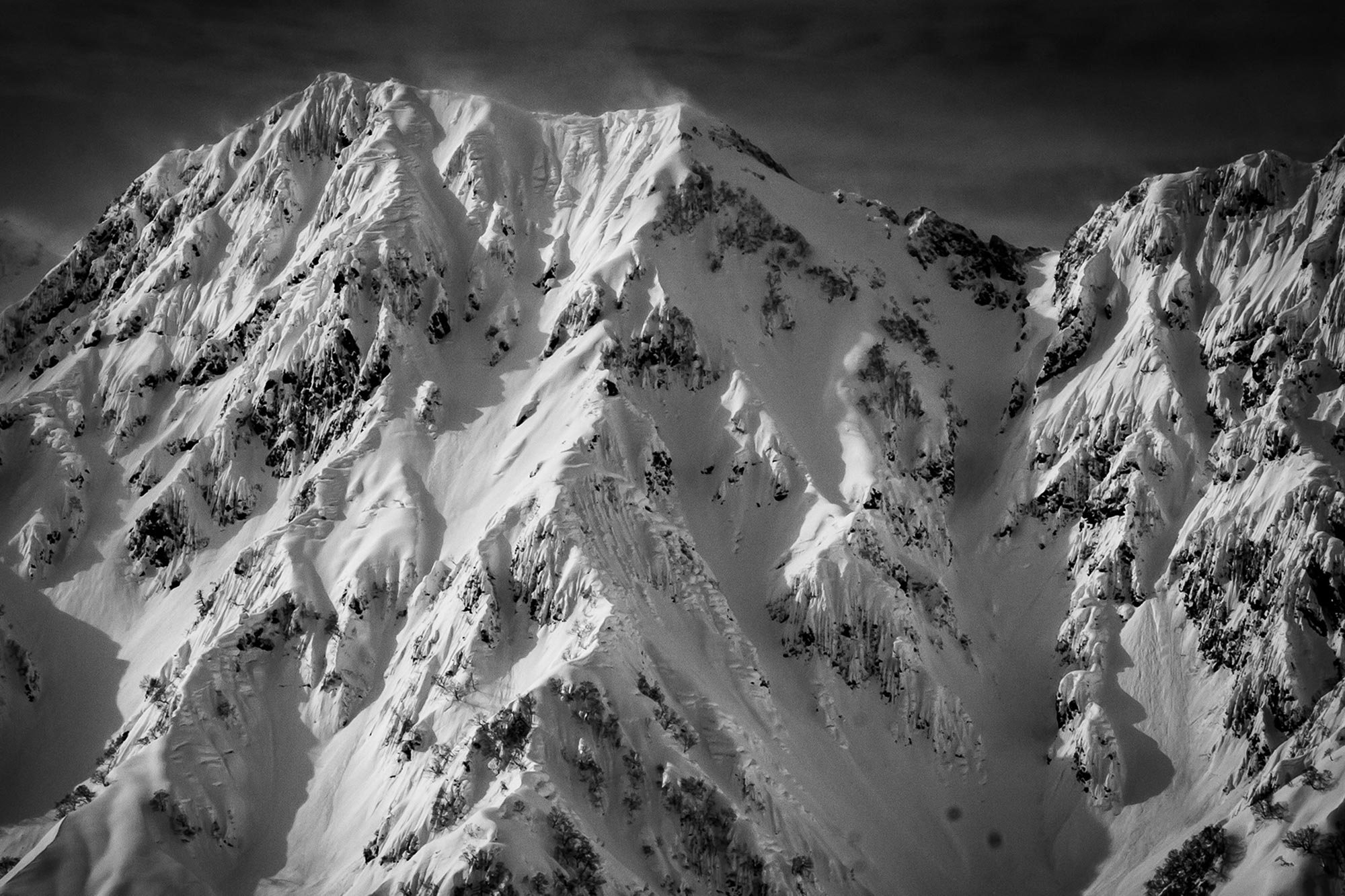
Under Nicolas Hale-Woods´ leadership, the FWT expanded from a small, homegrown organization into a sprawling international event series with exotic venues such as Hakuba, Japan. Under the FIS umbrella, the reach of the FWT is expected to further expand. Photo: Mark von Roy
What are the concrete advantages that you expect from being part of FIS?
Well, there are five major advantages that I would like to point out:
First, the networking of FIS. When you decide to organize an event in places like Georgia, Japan or even North America—basically anywhere outside of the Alps, where we are well known—it’s a big difference whether you approach a destination or a region with the structure of FIS, or as Nicolas Hale-Woods from a small company in Switzerland. And since destination partners have become a huge factor in organizing the FWT, it is a great advantage to have this FIS network.
Second, media-wise, we continue to communicate our events as we have in the past, with the player on our website, our media partners, channels on TV and so on. However, through FIS we open up a whole new scope of media reach through existing partnerships with many national broadcasters and so on. Therefore we hope to further broaden our media reach to everybody’s advantage.
Third, commercial developments will be easier. We will continue with our existing sponsorship partners and when the time comes to extend the deals, they will have priority. But when we have to find new sponsorship partners, there is a big network of sponsorship partners of FIS which we can much better approach in the future.
athletes face an ever-increasing competition for attention and funding which makes it harder and harder to further progress. Therefore, the change to be a sport recognized by a big international federation like FIS will hopefully broaden the athletes’ options to fund a career in freeriding.
Fourth, better recognition and standing for athletes. I was talking to Sybille Blanjean, who won the Verbier Xtreme last year, who was telling me that some people in the media and the industry still don’t consider freeriding as a proper sport, limiting her options to find sponsoring partners or publicity for her achievements. To some people, being part of FIS makes a big difference in becoming legit. This can help athletes in many ways. It starts with the option to become recognized by school programs or federal athlete support programs which helps hugely to be able to participate in the sport and still progress your education in school, at university or otherwise establish a career next to your career as an athlete. There has been ongoing criticism that there isn’t enough money for athletes in the sport of freeriding. That is somewhat understandable, since the sport has come a long way since its beginning and it’s through the commitment of the athletes and their ever-increasing professionalism that this development is possible. However, similarly to event organizers, the athletes face an ever-increasing competition for attention and funding which makes it harder and harder to further progress. Therefore, the change to be a sport recognized by a big international federation like FIS will hopefully broaden the athletes’ options to fund a career in freeriding.
Finally, there is a common goal to get freeriding to the Olympics for both the FWT and FIS. Obviously, there is no chance to become an Olympic sport within skiing or snowboarding without being part of FIS. I believe that becoming an Olympic sport will be a huge step forward for everyone involved, especially for the athletes. Therefore, a cooperation with FIS in one way or another was inevitable.
I believe that becoming an Olympic sport will be a huge step forward for everyone involved, especially for the athletes. Therefore, a cooperation with FIS in one way or another was inevitable.
Regarding FIS Freeride World Championships and inclusion into the Olympics, can you give us an estimation of when that will happen?
For the Olympics, hopefully freeriding will be part of the Games in 2030. For World Championships, it’s too early to say anything meaningful right now. The agreement was signed two weeks ago. The winter has started and we need to focus on running this season. We’ve start discussions for the future, but we don’t want to rush things. There will be a Junior World Championship this season based on the previous model of those events, but for a [regular] World Championship, it’s too soon to make any predictions.
Are there any changes to any FWT rules?
For this season, there is no change at all to the rules, they stay exactly as before we signed the agreement with FIS. We have been always very pragmatic with the approach to our rules, and we will adjust when necessary, but we will continue to discuss this with the athletes as time evolves.
For this season, there is no change at all to the rules, they stay exactly as before we signed the agreement with FIS.
Finally, how do you personally feel about this whole development? You started the Xtreme Verbier in 1996 as an independent group of snowboarders, which has arguably become the biggest freeride event on the planet, and developed the FWT with a small company into a worldwide structure. Now you are part of the FIS, basically the total opposite of independent and small. I guess 25 years ago, you would have never imagined that.
When we started out a good 25 years ago, we didn’t have much experience, and the ISF actually helped us out big time in the first edition by sanctioning us, but mainly by helping with experience in event organization and with contacts in marketing. Since then we have come a long way. I guess you should ask me that same question in one year, and maybe in three years, and again in five or eight years. See how I will think about it then. For the moment, I feel good about it because I believe it opens up more opportunities for everyone involved, particularly for the sport and the athletes.
